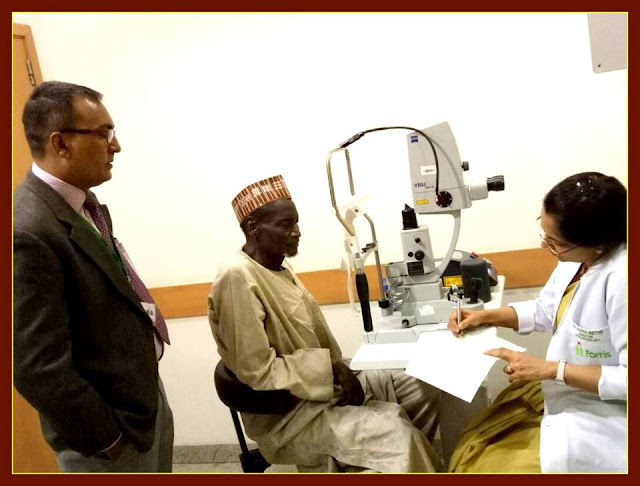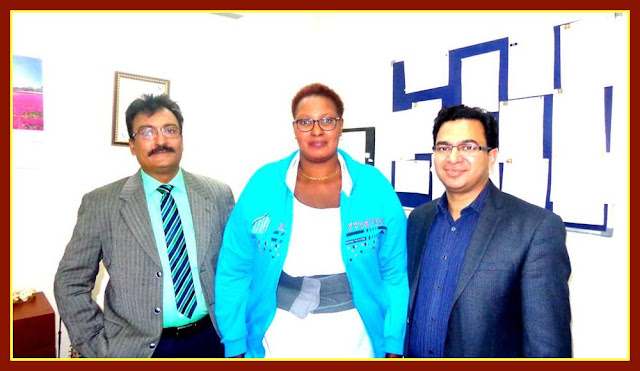Life Saving-Cost Effective-Organ Transplant in India | CMCS Health
Today India is one of the leading destinations in Asia for Life Saving - Cost Effective -Organ Transplants in India. Total transparency in proceedings ,Ethical modus operandi,Globally at par competency and expertise of Doctors and paramedical staffs,modern and well equipped treatment centers have made India the sought after country among the global population for an organ transplant.
The history of Kidney transplant in India dates back to 1970's and since then India has consolidated its position not only among the natives but among the people from all across the Globe.The beginning of Kidney transplant surgery in India in the first few years of it's inception was involved with grooming of surgical skills and mastering the immunosuppression for acceptance of the newly transplanted graft in the recipient and minimizing the graft rejection.With passage of time,the success rates achieved with advent of newer immunosuppressive medications and growing in expertise of surgery skills are phenomenal.
As all the new beginnings are surrounded by controversies ,the live donor organ transplants program was also marred by the news of organ trading and commercialization from many quarters.
Indian Government on it's part passed the The transplantation of human organ act (THO) to curb the menace and regulate the live donor organ transplants in India which made the selling and purchasing of humans organ for transplant a crime and approved cadaveric organ transplant after the brain death of a healthy person as a viable option for the patients advised an organ transplant by the medical specialists.
Since the cadaveric donation is still in a nascent stage there is a huge shortfall or gap in the demand and supply for patients seeking an organ transplant to overcome an end stage disease of kidney,liver, bone marrow,lung,heart or pancreas.
Certain amendments have been made since then by the government to regulate the organ transplantation for end stage diseases. The New amendments allow a live donor organ transplant from close relatives with strict guidelines.
As per the new ruling of the government of India, for regulating the Organ transplant in india following parameters are to be met:
For a live donor Kidney or Liver Transplant the Following people are considered as related donors:
The blood relative who are allowed to donate for a end stage organ failure patient are Mother,father,son,daughter,brothers and sisters and a husband/wife. After much deliberations Grandparents and grandchildren are also included in list of blood relatives.A DNA /HLA test is done to determine the relationship of donor and recipient along with other legal documentations for proving them to be blood relative,in front of Government of India appointed Organ transplant committee for approval.
In case there is no blood relative available for a patient,other relatives may also be considered as live donor with proper documentation and proofs of their being relatives and that the donation is being done only because of altruism and affection and no financial gain for the donor or pressure of any sort is put on the donor. Again the donor and recipient have to appear in front of Government of India appointed organ transplant committee for approval with all relevant documentation and a personal interview.
Cadaveric Donations have still not picked up as desired and there is a huge gap between the recipients waiting for a donated organ and cadaveric donations. Now because of awareness created by certain NGO's and government bodies the cadaveric donations have very slowly started picking up,but still the gap between demand and supply is mammoth.
Doctors ascertain that for a Live donor Kidney transplant , the donor have to be a healthy individual between the age of 18 years to 55 years.
The renowned Kidney disease and kidney transplant specialist of India ascertain the risk and post donation life of a live Kidney donor as safe and without any foreseen complications. The risk for live donor's single Kidney going bad are similar to that of a person with both kidneys.
For a Live Donor Liver Transplant, The Leading Liver Disease specialist and Liver transplant surgeons insist that the liver functions are restored in the live donor within 3 to 6 weeks of the donation to almost full functionality of prior to donation.
A through screening of the donor before transplant,ensures that there is no abnormal risk to donor and post donation life of the donor.
The expertise of doctors and post transplant Paramedic and ICU staff,well equipped and well managed hospitals have made the live donor kidney and liver transplant see a success rate of almost 95%, with no major or abnormal risk to life and post donation life for the donor.







































